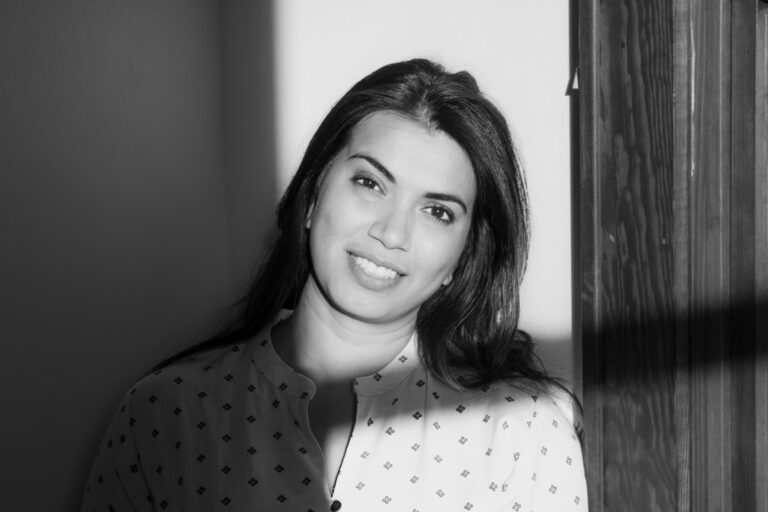What began as an attack on a train carrying Hindu pilgrims returning home from a religious ceremony escalated into retaliatory riots against the state’s large Muslim minority. In what are now known simply as the Gujarat riots, hundreds, if not thousands, of families were targeted, hunted down and killed by vigilante assailants. Months of lockdowns and curfews followed. Widespread international condemnation, much of it aimed at the leadership of then-Chief Minister Modi, led by journalists and human rights watchdogs who accused his Hindu nationalist government of failing to intervene, condoning and even conspiring with the attackers. Modi was cleared of all charges, but the taint of the incident has only grown with time, with new outbreaks of violence and hatred occurring as the BJP has risen to power across the country.
“The Lucky Ones” is a new memoir by Indian Muslim writer Zara Choudhary, who was a teenager hiding out in Gujarat during the riots. Where the bland words of the news reports leave a gap, Choudhary’s memoir fills in the gaps with vivid testimony told with strict and unapologetic subjectivity. Unlike those who were hunted down, raped and murdered during those months, Choudhary was one of the “lucky ones” and her Muslim memoir is a survivor’s song. As a writer, she is an avid student of Anne Frank, Ta-Nehisi Coates and Marjane Satrapi, whose seminal works are also masterpieces of political and national history. Choudhary deftly weaves together the rise of right-wing politics with the harsh awakening and pain of becoming a woman, along with her beloved sister. Weaving and fabrics are recurring motifs, an ode to the Islamic weavers and craft traditions she holds dear. Even the book’s cover is an illustration of two young women peeking through a tear in a patterned Indian cloth.
The story unfolds primarily on an eighth-floor balcony overlooking the city of Ahmedabad, the apartment where Zara has been holed up with her family for months. In a deliberate echo of the Holocaust narrative, Choudhary, confined within the paltry walls of her tiny home, is haunted by what is happening to those less fortunate than herself. The balcony of the complex, titled Jasmine Apartments, serves as both an architectural space at the border between inside and outside the home, and a literary symbol, as a place where the grown-up Choudhary can reflect on her past life. She writes: “A thousand invisible fingers point to our balcony from all sides, a million eyes are turned towards Muslims across the state as they sit huddled in their homes. It doesn’t matter that this land on which we all stand tonight is Gandhi’s land. Something has been uprooted. Something has changed. A new land and new people have been reborn in the fire.”
The author currently lives and teaches in Wisconsin. The book is both a scathing critique of Modi’s India and a requiem and rebirth for her family’s secular India, where so many people have lived and may still live, whose past lives were interconnected across class, caste and religion, where Hindu gods danced with Sufi songs and where dedicated civil servants rejected the calls of tribalism. Choudhary’s professional background in film and advertising is reflected in the powerful, shimmering scenes that pepper the story. There are brief, powerful evocations of sense memory and the melancholy of a home and country left behind. In her descriptions of the familiar smells of neighborhood flowers and her mother’s cooking, we sense her love for the culture and language of her adulthood. But the memoir also simmers with a seething, and rightful, political anger that seeks both catharsis and literary retribution. By writing into the void where erasure and degradation once reigned, Choudhary seeks to restore his family’s lost dignity as Indian Muslims so that they can be recognised as citizens.
Like many contemporary memoirs that have subverted the easy linearity and the concise announcement of a bow-tied redemption story, The Lucky Ones is a book without easy answers or easy hopes. Its short chapter structure is intentionally fragmented and disjointed, as unpredictable and unwieldy as the memories themselves. It can be confusing to read, but throughout the book I felt a deep sense of relief that I was in the hands of a writer who was in control of what he wanted to express. I am adamant in the idea that if journalism tells the reader what happened, literature reveals how the reader feels. This debut is a testament to the power of literature to do what no other language or commentary can: put the reader among the fortunate tribe, the lucky people.
Bilal Qureshi is a cultural writer and radio journalist.

